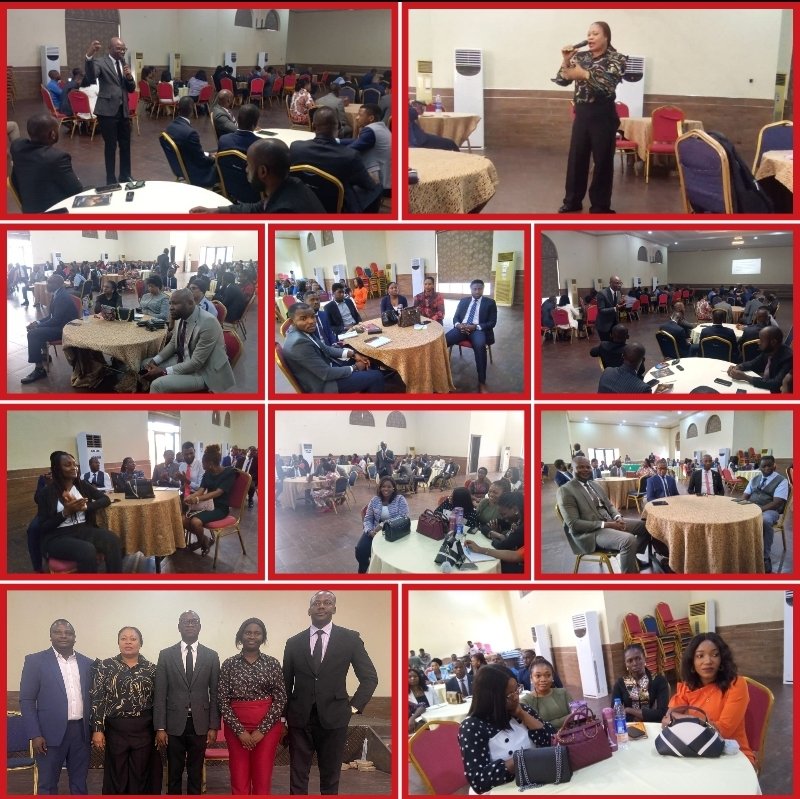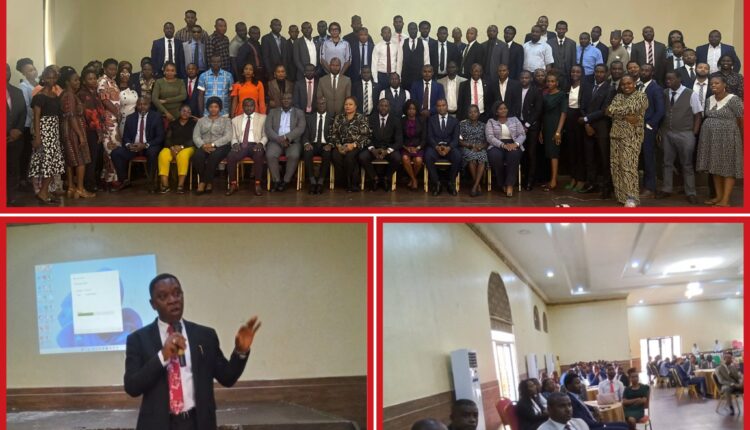
In its continuous bid to tackle some emerging crimes and build stronger capacities for future challenges, the Economic and Financial Crimes Commission, EFCC, has trained One Hundred of its officers on Forensic Document Examination, Digital Forensics, Fingerprint and Crime Scene Management in Enugu.


The One-day training, which was held in Oaklands Hotel, Government Reservation Area, G.R.A, Enugu, drew participants from different cadres. The training, themed; “Forensics Revamped: Empowering Investigations” is an initiative of the Commission’s Forensics and Crime Laboratory Services Department, FCLSD, aimed at enhancing the effectiveness and efficiency of the Commission’s investigative processes.
The training was focused on improving the laboratory processes, procedures, modernizing forensics techniques, incorporating advanced technologies and providing comprehensive training to first responders.
Taking the participants on Forensics Document Examination, Assistant Commander of the EFCC, ACE II Joshua Oloye noted that a document can be questioned because of its origin and circumstances regarding its production, adding that in order to arrive at a reliable conclusion, the examiner needs genuine documents for comparing the questioned document. He said that materials for comparison purposes are known as Specimens.
Describing a Specimen as a sample of handwriting, signature and documents collected for examination, Oloye listed three types of Specimen which include; Request, Standard and Contemporaneous. He equally spoke on how to collect Specimens, laying emphasis on the Dos and Don’ts of collecting Specimens.
Oloye also discussed how documents are marked for examination, Features of a Request Letter and Forensics Quality Control and Assurance.
Speaking on Digital Forensics, Deputy Superintendent of the EFCC, DSE Ladi Akujobi outlined classes of Digital Forensics which include; Computer Forensics, Live Forensics, Mobile Forensics, Network Forensics amongst others.
Officers were also exposed to topics like Fingerprint and Crime Scene Management, Forensics Audio, Video and Image Analysis.
Discussing Fingerprint and Crime Scene Management, Deputy Superintendent of the EFCC, DSE Kenechukwu Nnaji described fingerprints as an impression, left by the friction of a human finger. He outlined three types of fingerprint patterns which include Loop, Whorl and Arch. “Fingerprint identification or hand print identification, is the process of comparing two instances of friction ridge skin impressions from human fingers or toes or even the palm of the hand or sole of the foot, to determine whether these impressions could have come from the same individual”, he said.
He outlined Uniqueness, Permanence, Universality, Complexity and Detail, Ease of Collection, Technical Compatibility, Legal Acceptance and Cost Effectiveness as reasons for using fingerprints for identification.
Nnaji also outlined the importance of fingerprint for Identification which includes linking one crime scene to another involving the same person, providing biometric security, amongst others. He thereafter discussed Crimes Scene Investigation, CSI, Roles of Crime Scene Officers, Forensics Audio Analysis, Voice Track Comparative Chart, Video and Photo Enhancement Techniques.
Earlier, while declaring the training open, the Acting Zonal Director of the Enugu Zonal Directorate of the EFCC, Deputy Commander of the EFCC, DCE Mohammed Shuaib Bello, who was represented by the Assistant Commander of the EFCC, ACE I Ekerendu Effiong noted that the Commission has the best forensics experts in West Africa and urged the participants to optimize the exposure that the training will offer.


